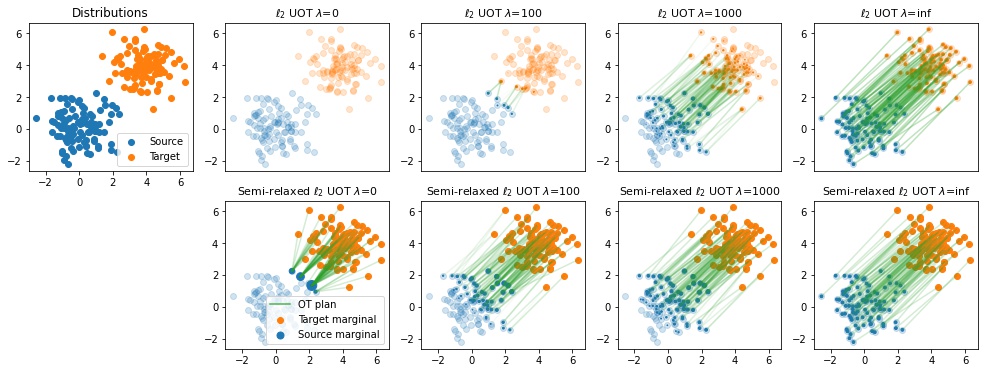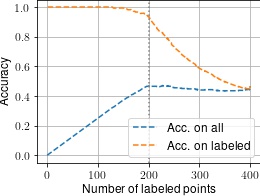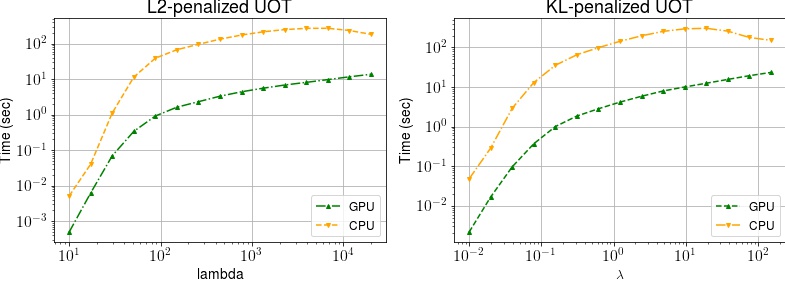Contains the code relative to the paper Unbalanced Optimal Transport through Non-negative Penalized Linear Regression https://arxiv.org/abs/2106.04145
@inproceedings{chapel2021unbalanced,
title={Unbalanced Optimal Transport through Non-negative Penalized Linear Regression},
author={Chapel, Laetitia and Flamary, R{\'e}mi and Wu, Haoran and F{\'e}votte, C{\'e}dric and Gasso, Gilles},
booktitle={Advances in Neural Information Processing Systems 34},
year={2021}
}
To install requirements:
pip install -r requirements.txt
The regularization path algorithm is implemented in the Python Optimal Transport (POT) toolbox and is the latest version up-to-date.
The functions for running the algorithms can be found in the following files:
solvers\solver_kl_UOT.pycontains the functions that allows solving the KL-penalized OUT, that isot_ukl_solve_BFGSto run the BFGS algorithmot_uklreg_solve_mmto run our multiplicative algorithm
solvers\solvers_L2_UOT.pycontains the functions that allows solving the L2-penalized OUT, that isot_ul2_solve_BFGSto run the BFGS algorithmot_ul2_reg_pathto compute our regularization pathot_ul2_solve_lasso_celerto solve the UOT reformulated as a Lasso problem using the Celer implementationot_ul2_solve_lasso_cdto solve the UOT reformulated as a Lasso problem using the Scikit-learn implementationot_ul2_solve_muto run our multiplicative algorithm
solvers\solver_semirelax_L2_UOT.pycontains the functions that allows solving the semi-relaxed L2-penalized OUT, that isot_semi_relaxed_ul2_reg_pathto solve our regularization path algorithm
Our results given in Figures 1 to 5 can be reproduced by running the following notebooks:
- Figure 1 can be reproduced by running the notebook Figure 1.ipynb
- Figure 2 can be reproduced by running the notebook Figure 2.ipynb
- Figure 3 can be reproduced by running the notebook Figure 3.ipynb
- Figure 4 can be reproduced by running the notebook Figure 4.ipynb
- Figure 5 can be reproduced by running the notebook Figure 5.ipynb





